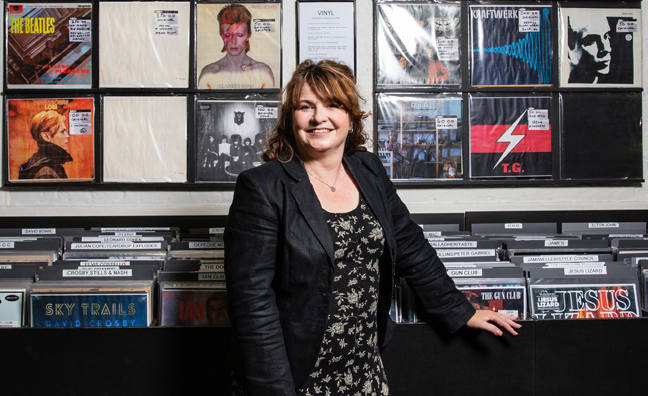Entertainment Retailers Association (ERA) CEO Kim Bayley has said "the streaming revolution saved the record business" in response to the growing debate about how to make the recorded music business work better for artists and songwriters.
The past few weeks have seen a conversation under the #BrokenRecord and #FixStreaming hashtags develop among musicians unhappy with the status quo.
Last week, the Ivors Academy and Musicians’ Union launched the Keep Music Alive alliance as part of an effort to bring about change, with Ivors CEO Graham Davies urging the industry to "fix streaming". The campaign is in response to gigs and commissions being cancelled, festivals and performances being postponed, and recording studios closed.
But speaking in a blog for members, ERA CEO Kim Bayley said: “ERA is a strong supporter of artist’s rights. Putting the interests of creators as well as consumers at the heart of all we do is one of our five key priorities. But DSP's cannot change current practices alone as their contracts are not with the artists. The whole music industry needs to work together and recognise the value each part of the industry brings to the table.
“The streaming revolution saved the record business. It would be short-sighted and self-defeating if in attempting to #FixStreaming, we ended up undermining it. You don’t mend a #BrokenRecord by smashing the record player.”
The UK record business is a billion pounds a year better off because of the innovation and investment of digital services
Kim Bayley
ERA
Bayley said the debate was being distorted by misleading claims, such as the complaint that streaming services pay “only” around 70% of subscription fees for the music they offer.
“The reality is that this is almost identical to the percentage of revenue paid for downloads and that in turn is little different to the margin on physical sales,” she said. “If it is “fair” to reduce the money Amazon or Deezer or Spotify, for instance, retain to run their businesses, it must be equally fair to do the same to iTunes, HMV and even Rough Trade, and no one is seriously suggesting that.”
She pointed out that the biggest physical record store in the world stocks no more than 100,000 albums, whereas the biggest streaming services have the equivalent of more than four million.
“The fact is that the larger the number of tracks, the larger the number of low earners as well as high earners,” she said. “An easy way to increase the average earnings of musicians on streaming services would be to dramatically cut back the number of tracks on those services, but no one is suggesting that.
“The UK record business is a billion pounds a year better off because of the innovation and investment of digital services. Artists and songwriters who would be receiving nothing for their work are now earning money. Driving growth, encouraging new users and persuading people not currently paying to stream music to do so, is our number one priority. That as much as anything is the guarantor that artist and songwriter incomes will continue to rise.”
Make sure you can access vital music biz information wherever you are by signing up for our digital edition here.








